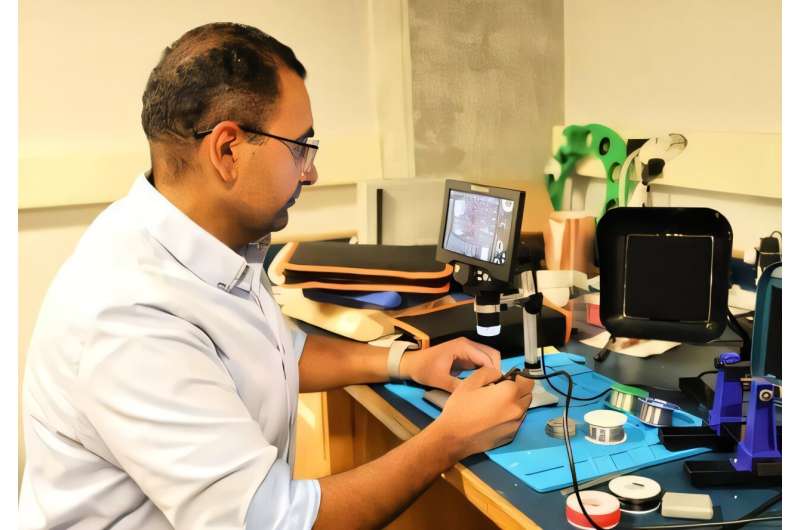“Imagine a future where your car, your couch and even your office chair don’t just support your body—they also actively protect your health by serving as early warning systems,” he said. “If widely adopted, this technology has enormous potential to save lives.”
At the core of the system is what Shaker—an adjunct associate professor of electrical and computer engineering at Waterloo—describes as a “super-sensitive motion detector” capable of registering the small chest movements created by a beating heart.
A cellphone-sized box attached behind a seat emits radar waves that invisibly fan out, then bounce back from the body of the person sitting in it. In the process, they register barely perceptible chest movements for analysis by a sophisticated computer algorithm aided by artificial intelligence (AI).

